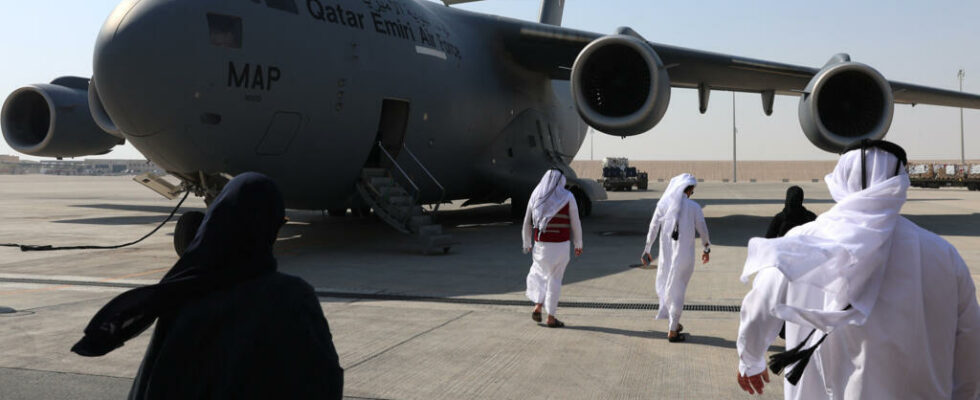The European Union announced on Friday December 13 the creation of an air bridge to Syria to primarily deliver medical supplies to the Syrians. If Brussels is currently being very cautious towards the HTS group, now in power in Damascus, this concrete humanitarian operation is the first European aid since the fall of Bashar al-Assad. The EU seeks to remedy the very precarious humanitarian situation of Syrians.
2 mins
Any humanitarian initiative could be essential in a Syria where 1.1 million people, mainly women and children, have been moved since the start of the rebel offensive on November 27, according to the United Nations humanitarian agency (Ocha).
As part of the European Union’s humanitarian aid mechanism (EU), the planes will take off from Dubai, where the EU has a logistics storage location to be able to quickly deploy and distribute emergency equipment. In total, 50 tonnes of medical supplies, food, medicines and even tents and equipment for setting up emergency camps will be flown to Adana, in the south of the Türkiye, reports our correspondent in Brussels, Jean-Jacques Héry.
From there, they will then be transported by road to Syria, whose border is 350 kilometers away. The supplies will be distributed there “ in the coming days », indicated the European Commission, probably from Monday 16 or Tuesday 17 December.
At the same time, 46 tonnes of additional equipment will be transported by truck from the Denmarkwhere the EU also has a storage center. Here again, this involves sanitary equipment and tents, but also educational and teaching tools for children.
On the ground, the distribution of this aid inside Syrian territory will be managed by the World Health Organization (WHO) and by the UN child protection agency (UNICEF).
The Commission will also release an additional four million euros, bringing its total humanitarian support to Syria to 163 million euros this year. This amount will finance the provision of emergency care kits, emergency shelter, as well as support for the distribution of food parcels in northern Syria. Here too, the EU will rely on humanitarian partners already working on the ground to ensure rapid and effective distribution.
The European Commissioner responsible for emergency humanitarian aid, Hadja Lahbib, wrote on up close the evolution of the situation in Syria and rest(has) in contact with partners in the region “. “ With such a volatile situation on the ground, our assistance to the Syrian people is even more important », underlined the President of the European Commission Ursula von der Leyen.
Also readSyria: after the fall of Bashar al-Assad, the humanitarian challenge
